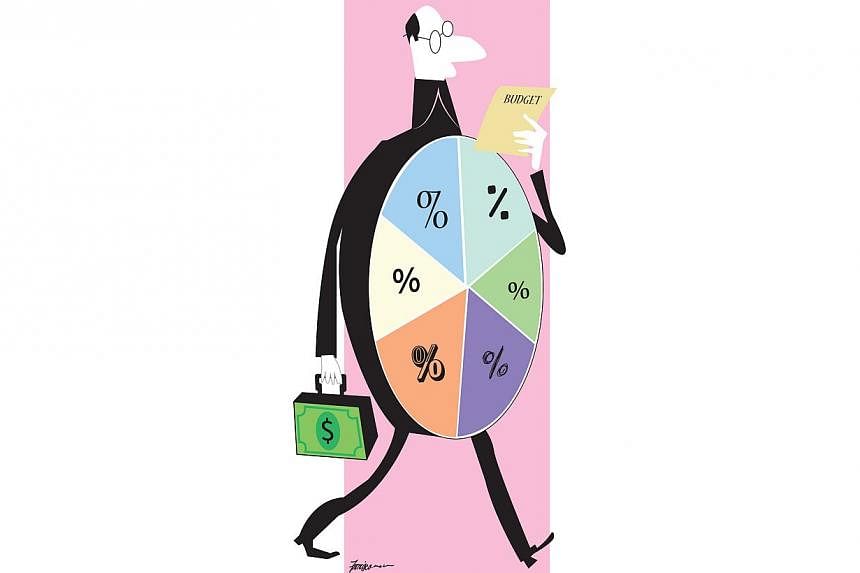Today is Budget Day in Singapore, and it is looking more and more like it will be an election Budget. At least that is what it seems to many of the armchair political analysts at my family's Chinese New Year gatherings this year.
According to the rules, the People's Action Party (PAP) has until January 2017 to call the next general election. So far, the talk has been that it would be held some time next year, given the hectic schedule associated with the SG50 celebrations and hosting the SEA Games this year.
But now, some think that the PAP will take advantage of the momentum it recently gained against the Workers' Party over the Aljunied-Hougang-Punggol East Town Council fiasco to call the election early, while the issue is still fresh in voters' minds.
If that is the case, this year's Budget could well be the last before Singaporeans go to the polls.
And if the most aggressive punters are right, it may even be the last major set of policy announcements by the Government before the election is called. After all, the last two general elections - in 2006 and 2011 - were both held around the same time, immediately after the Budget debate and in the first week of May.
Now, if Budget 2015 is going to be an election Budget, then two questions arise.
The first is more pragmatic: What additional goodies can voters expect from Deputy Prime Minister and Finance Minister Tharman Shanmugaratnam?
Well, if recent history is anything to go by, part of the answer will be in cold, hard cash.
In 2011, Singaporeans got up to $800 each in Growth Dividends as part of a $3.2 billion Grow and Share Package, which the Government said was aimed at helping lower- and middle-income families cope with the higher costs of living.
There was also a 20 per cent personal income tax rebate, capped at $2,000. The Growth Dividends were disbursed on May 1, just in time for the election on May 7.
In fact, the concept of Growth Dividends was first introduced in 2006 as part of the Budget that preceded that year's general election. As part of what the Government called its Progress Package, each Singaporean also received up to $800 each, also in cash, and also disbursed on May 1, before the election on May 6.
Of course, this has not escaped the notice of critics, with opposition parties here charging that the PAP is engaging in everything from "pork barrel politics" to tacit vote buying.
The ruling party has shot back, saying that the Government has always returned economic surpluses to Singaporeans in such a manner, whether it is election season or not.
"If this is what people call an election Budget, we will have an election Budget every year," Dr Amy Khor, Senior Minister of State for Health and Manpower, said during the Budget debate in 2011.
To me, whether the Budget in any particular year was an election Budget is not a very interesting debate because the answer is so much a matter of political rhetoric.
Besides, it seems only logical for politicians to sweeten the ground before heading to the polls, so packing in some goodies for voters in an election Budget seems to be nothing more than good strategy.
The more interesting question for us in Singapore, I think, is whether such a strategy still works. As the economy and the electorate mature, can a last-minute "gift" of a few hundred dollars really cause someone to change his vote?
The money will probably make the most difference to low-income workers and their families. Yet, for them, as Dr Khor's pithy retort suggests, every Budget has been an election Budget.
This has been especially so in the past few years, when the Government's emphasis on "inclusive growth" saw it training its resources on uplifting poorer segments of society with a panoply of grants, rebates and top-ups.
For Singapore's middle-income group, worried about the rising cost of housing, education, private transport and health care, perceptions are unlikely to change with a Growth Dividend hongbao that may not even cover one month of childcare or enrichment classes. Indeed, some would say, don't even remind them of the fact.
Ditto the highest-earning segments of society, who obviously don't need the handout and would be far happier if the Government would only relax foreign worker quotas and do something about high rentals that have got in the way of them doing their top jobs properly, or expanding their family fortunes.
For the latter two groups, day-to-day problems have to do with long-term issues that clearly cannot be resolved in one Budget exercise, so 2015's election Budget (if it is one) can hardly be relied upon to change votes.
Seen in that light, a generous election Budget can only hope to, as some political scholars put it, "weaken voter resolve", whichever way they originally intended to vote.
And if the ruling party is lucky, it may remind some voters that it was careful husbandry and prudent management of resources that led to the Government's ability to spend in this way before an election.
The question is not whether Budget 2015 will be an election budget packed with goodies. The question is, so what if it is?

